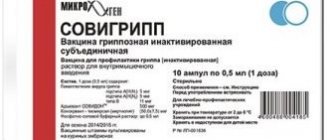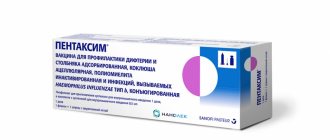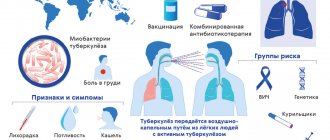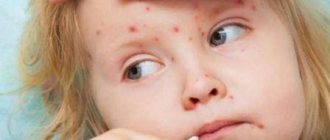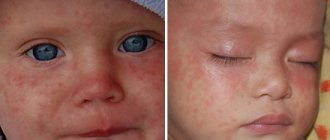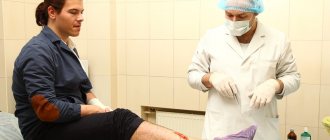Measles is a dangerous disease that has been familiar to the inhabitants of the planet for a long time. The disease is transmitted through the air and is extremely dangerous. Each year, more than 100,000 people die from measles and complications of the disease. The only effective way of protection is vaccination, which is given to children and adults. It reduces the risk of death from the disease and the risk of infection by 85%. Recently, due to the fact that cases of outbreaks of the disease have become more frequent in the CIS countries and Europe, many people have a question about in what cases adults are vaccinated against measles.
The danger of measles for adults
In adulthood, measles is very severe. The disease sharply reduces the patient's immunity, causing complications in the form of pneumonia, hepatitis, sinusitis, otitis, bronchitis, pyelonephritis, meningitis and meningoencephalitis, keratitis, eustachitis.
All complications can lead to unpredictable consequences, but the most dangerous are meningoencephalitis, which affects the nervous system, and encephalitis, which is fatal in a quarter of all cases of its occurrence.
Vaccination is the only way to protect yourself from measles and not become infected with it in childhood and adulthood.
Risk of post-vaccination complications
In extremely rare cases, neurological disorders develop. Complications in the form of encephalopathy - less than 1 case per 300 thousand vaccinated people, convulsions - <0.0001%. Encephalitis has been reported at an incidence of less than 1 case per 10 million doses, which is significantly lower than that observed in natural diseases (measles: 1:1000 -1:2000; rubella: 1:6000 cases).
Thrombocytopenia – 1 case per 40,000 vaccinated people. This is why, as a rule, monitoring of blood tests (platelet levels) in children is required before immunization against measles.
When and how to get vaccinated against measles
Adults are vaccinated against measles according to the schedule approved in a particular country. Up to the age of 35, every person is entitled to free vaccination, provided that he has not been sick and has never been vaccinated against measles. Also, regardless of age, free measles vaccination is mandatory for persons who have been in contact with infected people, but have not previously been sick and have not been vaccinated.
If a person received only one vaccination as a child, he is vaccinated in the same way as an adult who has never been vaccinated against this disease - twice with a three-month interval between administrations. The immunity obtained in this way is resistant to the virus for 12 years.
The measles vaccine is administered to adults under the skin or intramuscularly in the upper third of the shoulder. Due to the pronounced fat layer, the vaccine is not administered to the gluteal muscle, as well as to any other areas of the body prone to the formation of compactions.
Measles vaccination rules
The vaccination scheme assumes that the first vaccination is given to a child aged one to one and a half years, but in countries with an increased threshold for morbidity, children can begin to be vaccinated from 6 months.
The second dose of the vaccine is administered to consolidate the result of the first, to develop additional immunity in case of insufficient formation and in the case when the first vaccination was missed for some reason.
The timing of measles vaccinations coincides with the same timing for rubella and mumps. That is why sometimes these vaccinations are carried out in a comprehensive manner, protecting children with one drug from three severe infections at once.
Why are measles, rubella and mumps dangerous?
First of all, the fact that an infected person can act as a source of spread of a viral infection and at the same time not know about the presence of the disease. The incubation period for measles, rubella and mumps lasts from 10 to 20 days. Symptoms of the disease appear after this time and persist for 1–2 weeks.
For 1 week after their disappearance, the person still continues to be a spreader of the virus.
Measles, against which children are vaccinated as part of the CCP, is considered one of the most contagious. The disease is transmitted through contact with a sick person in 95% of cases. Particularly severe variants of the course of the disease are accompanied by the development of encephalitis, hepatitis, and pneumonia in young patients. There are cases of death. Infection with this disease can occur both in utero and by airborne transmission. In the early stages of pregnancy, there is a risk of fetal death, development of dementia or mental retardation. In the later stages, there is a possibility of premature birth.
Mumps in 15% of cases of disease development leads to damage to the membranes of the brain and spinal cord. According to statistics, every 20,000 sick person experiences deafness (after suffering from labyrinthitis). In boys and men, this disease causes inflammation of the testicles and appendages. Representatives of the adult population have prostatitis. Occasionally, mumps is accompanied by the occurrence of complications in patients such as pancreatitis, nephritis, mastitis, etc.
Rubella detected in women in the first trimester of pregnancy is a medical indication for its termination. If this is not done, in 80% of cases the newborn will be diagnosed with heart defects, mental retardation, deafness or cataracts. A child is born with congenital rubella. For 6–30 months, he undergoes treatment, acting as a source of infection and infection of all people in his circle of contacts.
Effect of the vaccine
The measles vaccine creates immunity against this disease for 20 years. However, at the age of six, the need for revaccination arises, since some children turned out to be insensitive to the virus introduced at the age of one, some have weakened immunity against measles, therefore, for more reliable protection, children are vaccinated twice.
During the third vaccination, which usually occurs in adolescence at the age of 15-17, people most often receive a multicomponent vaccine, since on the eve of childbearing age, girls and boys need protection against rubella and mumps, and the anti-measles component simply enhances the already formed protection.
Types of measles vaccines
There are several types of measles vaccines available today. All of them are divided into mono-vaccines, aimed at combating only measles, and combined vaccines, which help protect the body from other severe viruses at the same time.
Mono-vaccines registered and used in Russia include:
- Dry measles vaccine (Russia);
- Vaccine Ruvax (Aventis Pasteur).
Among the combined vaccines (multicomponent) vaccines are:
- Russian mumps-measles vaccine.
- Three-component American vaccine MMP II.
- Three-component Belgian vaccine Priorix.
Multicomponent vaccines that simultaneously protect against measles, mumps and rubella can only be purchased independently at vaccination centers or pharmacies. Russian anti-measles mono-vaccines are available in regular clinics.
It is important to remember that single-component vaccines are administered exclusively to the area of the shoulder or shoulder blade, while foreign multicomponent drugs can also be administered intramuscularly, according to the instructions.
Anyone can choose their own vaccines for themselves or their child. However, most often for the administration of multicomponent vaccines that are not supplied by the Ministry of Health, they are purchased independently.
Single vaccines (measles component only)
LCV (live measles vaccine)
The domestically produced live measles monovaccine is an effective means of protection against measles already on the 28th day after injection. Over the next 18 years, a person can be confident about his immunity against this infection.
Among the main contraindications for such a single vaccine, doctors name exacerbation of chronic diseases, acute viral and bacterial infections, cancer, HIV, and allergic reactions to the components of the drug. for injection. Also, LCV should not be used together with immunoglobulin and serums.
Ruvax (Aventis Pasteur, France)
The French-made monovaccine Ruvax helps prevent measles infection 2 weeks after vaccination. The effect of vaccination lasts for 20 years. Doctors recommend Ruvax for vaccination of newborns, in conditions of increased epidemiological conditions, or in other cases of vaccination under the age of 1 year. Contraindications for the Ruvax vaccination are the same as for GIB; in addition, Ruvax cannot be used by those undergoing radiation or corticosteroid therapy, or using cytostatics.
Combination vaccines
MMR II (measles, rubella, mumps)
The American vaccine against three serious infections, MMP-II, has proven itself very well in modern immunological practice. It can be administered simultaneously with DTP, DPT, polio or chickenpox vaccinations, provided that each injection is given to a different area of the body.
Among the main contraindications for MMP-II injection, doctors identify pregnancy, HIV, exacerbation of various chronic diseases, allergies to neomycin and chicken egg white.
Priorix (measles, rubella, mumps)
The second popular triple threat vaccine is Priorix, produced by the same pharmaceutical company that makes the famous DTP, Infanrix. The degree of purification of this company's vaccines is very high, due to which the reaction to vaccination is less pronounced.
Contraindications for the administration of Priorix are exactly the same as for MMP-II, in addition, this vaccine cannot be administered for neomycin contact dermatitis and acute phases of stomach diseases.
Mumps-measles vaccine (Russia)
The two-component Russian mumps-measles vaccine is administered to people, according to the approved vaccination schedule, at 1 and 6 years of age, and then during revaccinations of adults.
Doctors include the following main contraindications for the use of such a two-component vaccine:
- periods of pregnancy and lactation;
- anaphylactic shock, allergies;
- oncological diseases;
- severe reactions and complications from previous use of this vaccine;
- various diseases in the acute stage.
Measles-rubella vaccine
The Russian two-component measles and rubella vaccine is completely similar to the mumps-measles vaccine. It is important to remember that when using two-component vaccines, it is also necessary to purchase a single vaccine with the missing component of protection for full immunity against common viral infections.
Vaccination schedule
NKPP provides for the first administration of a complex vaccine to a patient at the age of 1 year. Revaccination is carried out at 6 years of age, from 15 to 17 years of age, and from 22 to 29 years of age. Further, every 10 years after the last vaccination. In the absence of vaccination at an early age, the first vaccination must be given at the age of 13 years. Revaccination must be completed between the ages of 22 and 29, etc.
In case of violation of the vaccination schedule (depending on the situation), it is necessary:
- vaccinate as close as possible to the NKPP - the time interval between revaccinations should be at least 4 years;
- be vaccinated with a monovaccine - provided that the child has already had any of the listed infections and does not need to create specific immunity in relation to it;
- undergoing immunization immediately after normalization of health is important for teenage girls.
Remember: children, unlike adults, tolerate the administration of a polyvalent vaccine easily. They (provided there are no contraindications to vaccination) do not experience complications or serious health consequences. If we compare the danger of the above diseases with the risks of vaccination, the former is many times greater than the unlikely harm from immunization. For example, in underdeveloped countries in Africa, about 745,000 children who have not been vaccinated with MMR still die annually from measles.
As for the adult population, in modern medicine there is a clear prescription for its vaccination. So, in particular, MMR vaccination is not recommended for people born before 1957. Earlier than this period of time, epidemics of measles, rubella and mumps broke out frequently, so with a 90% probability they had already suffered from these diseases. All those born after 1957 and who have not been vaccinated before are recommended to receive two doses of a live vaccine with an interval of 1 month (for teenagers!) For older people - one dose of an immunobiological drug.
How to prepare for MMR vaccination?
On the day of vaccination, it is necessary to measure the child’s body temperature and make sure that he is not sick. An examination by a pediatrician is required to rule out any contraindications for vaccination against measles, rubella and mumps. To prevent the risk of infection in a young patient in hospital, the time spent in a medical facility should be reduced as much as possible. It is optimal if one parent watches the queue, and the second goes outside with the child for a walk.
In preparation for vaccination, patients prone to allergies are recommended to take a three-day course of desensitizing medications. For children susceptible to colds, doctors recommend restorative medications. They should be taken 2 days before and 12 days after vaccination. Patients with a history of diseases of the nervous system need to prepare especially carefully for immunization. In particular, they are recommended to visit a neurologist and undergo a course of treatment with anticonvulsants. Such children are allowed to be vaccinated only during stable remission (with parallel administration of specialized medications, if necessary).
Contraindications to vaccination
All restrictions on vaccination against measles, rubella, mumps are divided into temporary and permanent.
Temporary ones include:
- pregnancy period;
- chronic diseases in the acute stage;
- the use of gamma globulin and other similar drugs;
- vaccination/testing for antibodies to Mycobacterium tuberculosis.
All of them require the patient to stabilize his health condition. On average it takes from 2 to 6 weeks. The exception is carrying a child. Permanent (absolute) contraindications imply a lifelong medical disqualification from the placement of CCP. They include in their list:
- Quincke's edema;
- allergy to gentamicin, neomycin, other components of the vaccine;
- egg white intolerance;
- blood diseases accompanied by thrombocytopenia;
- immunodeficiency states;
- malignant/benign neoplasms;
- complications caused by the initial administration of an immunobiological drug.
The question of how to protect the patient from the above infectious diseases in this case is decided individually. It involves a detailed study of the patient’s chart, as well as prescribing tests and additional examination.
Vaccine injection site
The complex MMR vaccine is administered in two ways - subcutaneously or intramuscularly. For children under 3 years of age, the vaccine is placed on the outer surface of the thigh. For older patients - into the deltoid muscle of the shoulder. The choice of such sites for the administration of an immunobiological drug is explained by the close proximity of the muscles and the small volume of subcutaneous fat.
For reference: when the vaccine gets into the fat layer, it is deposited, enters the blood slowly and does not have the desired effect on the body of the person being vaccinated.
Frequency of revaccination
There are no exact data regarding the duration of human protection from measles, rubella, mumps after vaccination. After a single vaccination, the patient’s immunity to these diseases can remain for 10–25 years (depending on the individual characteristics of the body). Afterwards revaccination is required. Involving repeated administration of an immunobiological drug, it is first performed at the age of 6 years. A patient develops a sufficient antibody titer when vaccinated twice.
What to do after vaccination?
You must be on the premises of the medical facility for 30 minutes after vaccination. If a newly vaccinated patient experiences an acute reaction, doctors will be able to stop it in a timely manner and prevent complications. For several days after installing the PDA, you should not visit crowded places. There is a possibility of contracting an acute respiratory viral infection and confusing it with a reaction to the administration of an immunobiological drug. There are no restrictions in terms of daily routine or hygiene procedures. The vaccinated person can shower or bathe freely. The only thing is that it is not advisable to wet or rub the injection site for a long time. No diet required. The main thing is not to introduce new foods into the diet, the body’s reaction to which has not yet been studied.
Possible reactions
If local, general reactions of the body occur to the administration of the combined MMR vaccine, there is no need to worry. They are natural (occur between 5 and 15 days after vaccination) and disappear on their own a few days after manifestation. All symptoms that occur at other times are not associated with the prevention of measles, rubella and mumps. They require specialist consultation, diagnosis and appropriate treatment.
The measles component of the polyvalent vaccine has the greatest reactogenicity.
Among the reactions it causes in patients are:
- local redness, swelling at the injection site;
- rash in the face, neck, back, arms, buttocks;
- cough (occurs 6–11 days after vaccination);
- increase in body temperature within 37.2 – 39°C;
- decreased/partial loss of appetite.
To bring down a high temperature during this period of time, the patient is recommended to take an antipyretic. The form of the latter can be different - from suppositories and syrups in children to tablets in adults. The mumps component of the vaccine is much easier to tolerate. Reactions to its introduction into the body appear on the 8th day after vaccination and can persist for a week after occurrence. Among them are lymphadenitis of the parotid glands, redness of the throat, and runny nose. The possibility of an increase in body temperature to subfebrile values (from 37.1 to 38.0 ° C) is allowed. Reactions to the rubella component are rare and mild. They can be expressed in hypermia of the area of administration of the immunobiological drug, enlargement of the posterior cervical and occipital lymph nodes, and the occurrence of joint pain (reactive arthritis). Such symptoms do not require special therapy. But if they cause severe discomfort, you can consult a doctor, and he will prescribe medications that can mitigate their symptoms.
Complications of MMR vaccination
Post-vaccination complications following the administration of the measles, rubella and mumps vaccine are very rare. If any occur, most often they are expressed in a nonspecific reaction to the active components included in the drug (Quincke's edema, anaphylactic shock, urticaria). If the conditions of production, storage and transportation of vaccines are violated, reactions associated with poor quality of MMR vaccination may occur. In particular, the occurrence of an abscess and phlegmon at the site of drug administration. Vaccinations for children with weak immune systems can cause them to develop certain diseases.
These are:
- vaccine-associated encephalitis;
- meningitis; pneumonia; myocarditis;
- glomerulonephritis;
- other diseases.
Patients temporarily vaccinated may experience a decrease in their platelet counts. As a rule, this phenomenon is asymptomatic, does not pose any danger, and disappears over time.
General rules for parents
On the eve of any proposed vaccination, the child must be protected from third-party contacts in order to avoid contracting any infections. In addition, it is not recommended to overcool the child, expose the child to sunlight, or overheat or acclimatize before vaccinations. The immune system reacts very sharply to any stress, which is all of the above impacts, and vaccination is also a stress factor for the immune system. When stress reactions are combined, antibody formation may malfunction and the development of the desired immunity may be disrupted.
Vaccination of children according to the vaccination calendar
In order to avoid all sorts of complications, pathology of the nervous system, as well as other severe consequences of measles, all children must be vaccinated against measles, according to the vaccination calendar in force in the area. At the moment, the minimum age of a child for measles vaccination is 9 months, since until this moment the baby must be protected by maternal antibodies. And the newborn’s immunity is weak enough to survive vaccination and form the necessary antibodies. Even at the age of 9 months, with the introduction of the measles vaccine, immunity occurs in only 90% of children. When such a vaccine is administered at 12 months, immunity is formed in almost all vaccinated people.
Thus, the optimal time for the first vaccination is considered to be 1 year of age. But in regions with a severe epidemiological situation, it is recommended to start vaccinating children earlier, which is where the 9-month figure came from. In this case, repeated vaccination is carried out at 15-18 months.
In countries with a calm epidemiological situation, it is customary to vaccinate children for the first time at 1 year of age, and subsequently revaccinate at 6 years of age. This vaccination tactic has eradicated measles outbreaks in many regions.
Compatibility with other vaccines
Vaccination against measles can be carried out simultaneously (on the same day) with other vaccinations of the National Preventive Vaccination Calendar (against mumps, rubella, polio, hepatitis B, whooping cough, diphtheria, tetanus) or no earlier than 1 month after the previous vaccination. After the administration of human immunoglobulin preparations, vaccinations against measles are carried out no earlier than 3 months later. After the administration of measles vaccine, immunoglobulin preparations can be administered no earlier than 2 weeks later. If it is necessary to use immunoglobulin earlier than this period, measles vaccination should be repeated.
After immunosuppressive therapy, measles vaccination can be carried out 3-6 months after the end of treatment.
Measles vaccination and pregnancy
During pregnancy, measles infection is very dangerous; it can lead to miscarriage and all sorts of fetal malformations. Because the measles vaccine contains live viruses, it is contraindicated during pregnancy. A woman needs to take care of her own safety before planning a pregnancy and undergo the necessary vaccinations.
Allergy to measles vaccine
Most modern vaccines are prepared using egg whites. If an allergy to egg white occurs at different periods of a child’s life, manifesting itself in the form of angioedema, urticaria, anaphylactic shock, the child should not be given the measles vaccine.
To find out whether there is a risk of such an allergic reaction, you must:
- soak a clean finger in raw egg white;
- Apply this finger to the inner surface of the baby’s lip;
- If there is slight swelling of the lip over the next 5 minutes, it may be concluded that vaccination with standard vaccines is impossible.
If the possibility of developing an allergic reaction is detected, it is necessary for the doctor to select a replacement for the standard vaccine and vaccinate with another means.
How is immunization tolerated?
Measles vaccine is a weakly reactogenic vaccine. This means that there are not many negative reactions and complications after its administration.
In 5-15% of cases, the following post-vaccination reactions are possible:
- Local inflammation - swelling, redness and pain at the injection site.
- General – measles-like rash, cough, runny nose, fever on the 5-12th day after vaccination.
- Children with a high temperature (more than 39C) may experience short-term convulsions. Occurs rarely and stops after 1-2 minutes. The condition is considered not dangerous.
You need to call a doctor if strong general reactions occur - in this case, symptomatic therapy is prescribed.
Post-vaccination complications are considered to be the occurrence of allergic reactions - most often a rash, extremely rarely anaphylactic shock. Such complications can occur in people with an allergy to chicken egg whites or antibiotics (gentamicin), which are included in the vaccine in small quantities.
The development of encephalitis is recorded in one case per million vaccinated people.
Considering the fact that before the introduction of universal vaccination, according to child mortality statistics, measles accounted for 1%, and up to 30% of those who were ill suffered from serious complications - the risk from vaccination is disproportionately small.
Contraindications to vaccination
Contraindications for vaccination in adults include acute respiratory viral infections or exacerbation of chronic diseases. With these symptoms, vaccination is postponed, on average, for a month.
In adults, there are also absolute contraindications for vaccination, among which doctors cite allergies to bird eggs, allergic reactions to antibiotics, previous vaccinations, pregnancy and breastfeeding.
In children, contraindications for injections against viral infections are:
- any disease in the acute stage;
- primary immunodeficiency;
- AIDS;
- use of blood products and immunoglobulin the day before;
- complications associated with previous vaccination;
- intolerance to aminoglycosides, protein;
- oncological diseases.
Contraindications
The vaccination has contraindications, in which case it will have to be completely abandoned or postponed for some time. These include:
- malignant blood diseases;
- HIV;
- presence of neoplasms;
- pregnancy;
- active tuberculosis;
- acute allergy to chicken eggs and aminoglycosides.
The possibility of vaccination in case of contraindications is discussed individually with a doctor. If there is a strong reaction when the vaccine is first administered, you should understand the reason before injecting again. You will have to postpone routine vaccination if you have a viral infection or ARVI.
Possible reactions to vaccination
In its normal course, the measles vaccine causes in adults:
- slight redness at the injection site;
- temperature up to 37.5 degrees;
- catarrhal phenomena;
- joint pain.
But it is possible to develop very dangerous side reactions - allergic shock, urticaria, Quincke's edema. Also, in particularly rare and severe cases, adults may develop encephalitis, pneumonia, meningitis, and myocarditis. To avoid such consequences, vaccination should be carried out while being completely healthy, and on the eve of the event, you need to consult an immunologist and use antihistamines.
How does measles occur in children and how do signs of the disease appear?
There are different degrees of the disease - mild, moderate and severe. However, in children, measles most often develops in moderate and severe forms, and is especially severe in children under two years of age. The mild form at the onset of the disease is quite dangerous, when the child has a slight fever, a slight cough, and can still attend kindergarten or school. If the disease is not tracked in time, such a child can infect all other unvaccinated children in the kindergarten or in the entire school (due to its high contagiousness).
The main symptoms of measles are fever, weakness, catarrh of the upper respiratory tract, inflammation of the eyes, and rash. The disease occurs cyclically. The first stage is catarrhal, when the main symptoms appear - cough, runny nose, fever, general weakness, conjunctivitis with photophobia and a “semolina”-type rash on the oral mucosa (the so-called Belsky-Filatov-Koplik spots), characteristic only of measles. Before the second stage begins, the temperature usually drops.
“After 3-4 days, the next stage begins - the period of rash. This is the peak of the disease, in which all the symptoms increase sharply, the temperature rises again and can reach 40 degrees or more, the cough intensifies, the lips and eyelids swell, the eyes water or fester, it hurts to look at the light, says Nina Yandraykina. “And a rash appears, starting from the area behind the ears and from the cheeks, then going down to the neck and chest, and the next day - to the entire torso, and on the third day also to the limbs. This stage lasts on average 3–4 days. Then comes the third stage - the period of pigmentation, when the rash gradually turns pale, disappears within 7-10 days, turning into light brown spots and accompanied by pityriasis-like peeling on the body, the temperature normalizes, and appetite appears.”
But, despite the improvement in the condition, the pigmentation phase is characterized by the presence of “anergy”, that is, a decrease in immunity. Therefore, those recovering from measles should be especially protected from contact with other infections and from physical and emotional stress.
pskovgorod.ru / City of Pskov
Reaction to vaccination in children
Among the common childhood reactions to measles vaccination, doctors call:
- swelling and redness of the injection site;
- some catarrhal phenomena;
- the appearance of a skin rash;
- poor appetite;
- fever during the first 6 days after vaccination.
In this case, all of the above symptoms can manifest themselves to varying degrees. The temperature may rise slightly, or may reach 39-40 degrees, other symptoms may or may not be present, but they should all gradually subside a week after vaccination.
Recommendations for vaccination
A healthy child or adult who has been examined by a pediatrician (general practitioner) and received the necessary conclusion can receive a measles vaccination.
It is better for people who often suffer from acute respiratory viral infections to be vaccinated in the warm season, and for allergy sufferers - in winter, so as not to aggravate allergic reactions to pollen.
After vaccination, it is advisable for both adults and children to avoid physical activity, and also not to eat food with a strong allergic component - chocolate, eggs, citrus fruits, etc.
Adverse reactions after vaccination
Complications expressed by various symptoms and side effects from measles vaccines are not common. Sometimes the temperature may increase as a side effect, and sometimes conjunctivitis or rashes may occur. All symptoms are typical for a period of up to 10 days after administration of the drug. This course of the post-vaccination period is considered natural.
Possible complications from vaccination include:
- all kinds of allergic reactions that can be prevented by taking antihistamines before and after vaccination;
- febrile convulsions in children due to very high fever, which can also be stopped by taking paracetamol when the temperature begins to rise;
- In one case in a million, severe damage to the nervous system occurs.
It is important to understand that all complications that develop as a result of vaccination are much weaker than those that may arise during transmission of the disease.
Post-vaccination reactions
All measles vaccines contain live, weakened (attenuated) measles viruses. Measles vaccine is weakly reactogenic. Vaccination against measles, as a rule, is not accompanied by any clinical manifestations. Most children do not experience any post-vaccination reactions. Among the undesirable post-vaccination events, an increase in body temperature (usually no higher than 37-380 C) and mild malaise for 2-3 days may be noted. In children prone to allergic reactions, a measles-like rash may appear (from 4 to 15 days after vaccination). Serious complications are extremely rare.
Is it possible to get sick after vaccination?
Basically, although the vaccine contains live viruses, they are so weakened that they are not capable of causing a full-blown disease. Often, vaccination can cause some kind of measles in a very weak form; such reactions occur easily and go away on their own, a week after the injection. A person in this state is not contagious to others.
However, sometimes a vaccine does not cause the formation of immunity against the disease, and a person can become fully ill with measles while being vaccinated. This phenomenon in medicine is called failure of vaccination immunity and can be observed in a small percentage of all vaccinated people.
Which vaccine is better
With different compositions of domestic and foreign vaccines, they all demonstrate high effectiveness in combating measles. There are 2 significant differences between these vaccinations. Firstly, domestic vaccines are prepared on the basis of quail eggs, while foreign analogues are made on the basis of chicken egg white. If you are allergic to any of these components, you should choose a different vaccine.
Best materials of the month
- Coronaviruses: SARS-CoV-2 (COVID-19)
- Antibiotics for the prevention and treatment of COVID-19: how effective are they?
- The most common "office" diseases
- Does vodka kill coronavirus?
- How to stay alive on our roads?
Secondly, imported vaccines have a multicomponent composition and protect against three infectious diseases at once - measles, mumps and rubella, which is very convenient in terms of vaccination. When choosing domestic vaccines, vaccinations will need to be done 2-3 times in each period of life. But at a local clinic you can only get a domestic vaccine for free, so you need to approach vaccination consciously, weighing the pros and cons.
What parents need to know about the vaccination procedure
All vaccinations must be done according to certain rules under the supervision of a doctor. You should prepare for vaccination every time. To ensure that the baby is healthy before the start of the vaccination cycle at 3 months, blood and urine tests are ordered a few days before the first vaccination. If everything is normal, before the procedure the child’s temperature is measured and examined by a doctor. Particular attention is paid to the presence of allergic manifestations. If they are present, after vaccination, antihistamines are prescribed on the recommendation of a doctor. It is also advisable to give the child an antipyretic in the evening on the day of vaccination.
Before vaccination, the doctor must tell parents in detail about possible side effects and their elimination. At the same time, mom or dad should understand when symptoms after vaccination are not dangerous and can be dealt with using available means, and when it is worth seeking help. After consultation on all age-appropriate vaccinations has been received, parents sign consent to them. Unfortunately, in local clinics the matter is often limited to a signature.
The ampoule with the vaccine for children is removed from the package in the presence of parents. They may also ask you to inspect it for cracks. You must be in or near the clinic for 30 minutes after the procedure. This is a precautionary measure in case of an allergic reaction. It is better to be in the air, because crowds of people and various infections in the air can cause side effects.
How many measles vaccinations are needed?
The number of measles vaccinations over a lifetime is determined by the age at which a person first received the vaccine. When vaccination begins at 9 months, a person will be forced to undergo 4-5 vaccine injections in life: at 9 months, at 15 months, at 6 years, at 16 years and at 30. With the initial vaccination per year, the number of subsequent injections is reduced by 1.
If there is no vaccination at the age of one, you should try to get the first vaccination as early as possible - at 2-4 years, and the next one should be done according to plan at the age of six on the eve of school. During the primary vaccination of a person over 6 years of age, he is administered a double dose of the drug with an interval of 1-6 months.
Principles and purposes of vaccination
Vaccination against measles has the following positive properties - it prevents epidemics of infection, reduces mortality and disability, and also helps limit the circulation of the virus in the population. Because measles is one of the leading causes of death among young children, the main goal of measles vaccination is to prevent the spread of this disease throughout the world.
By the end of 2014, 85% of the world's children under two years of age had received one dose of measles vaccine, and 148 countries included a second dose as part of their routine immunization programs. Immunization against measles is recommended for all susceptible children and adults for whom it is not contraindicated. This vaccine should be used to prevent outbreaks; large-scale vaccination to control existing outbreaks has limited effect.


